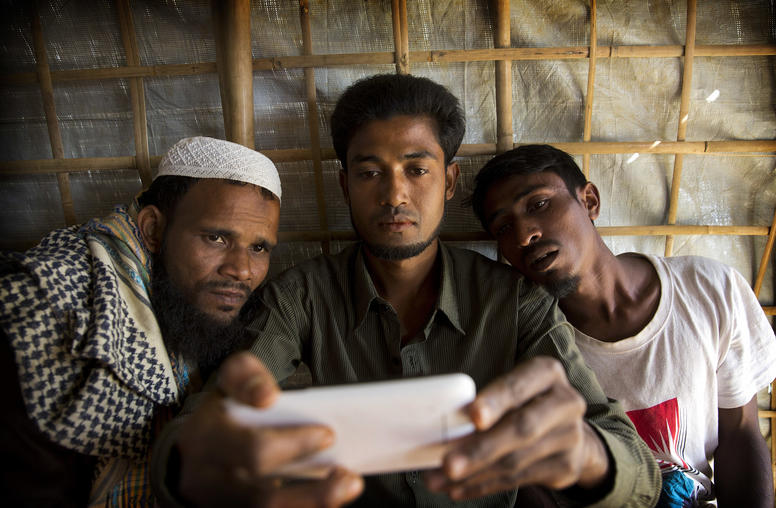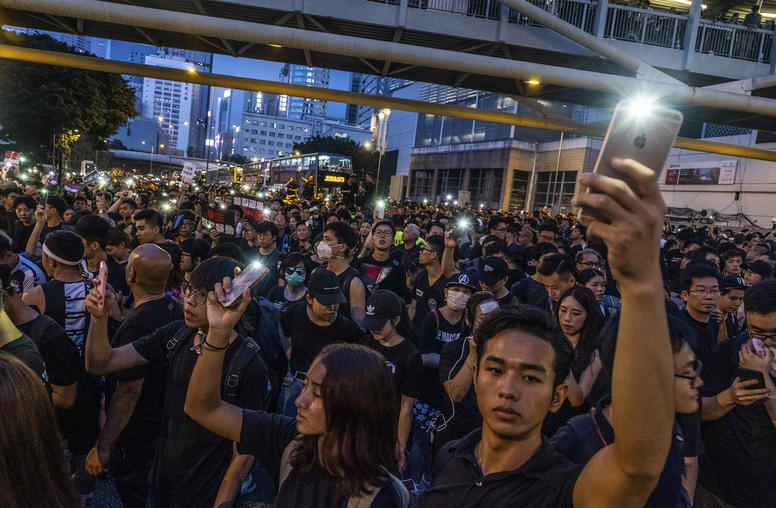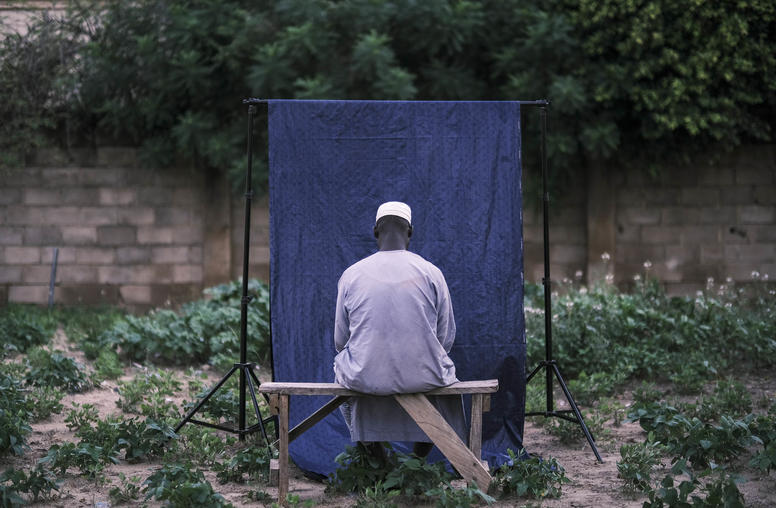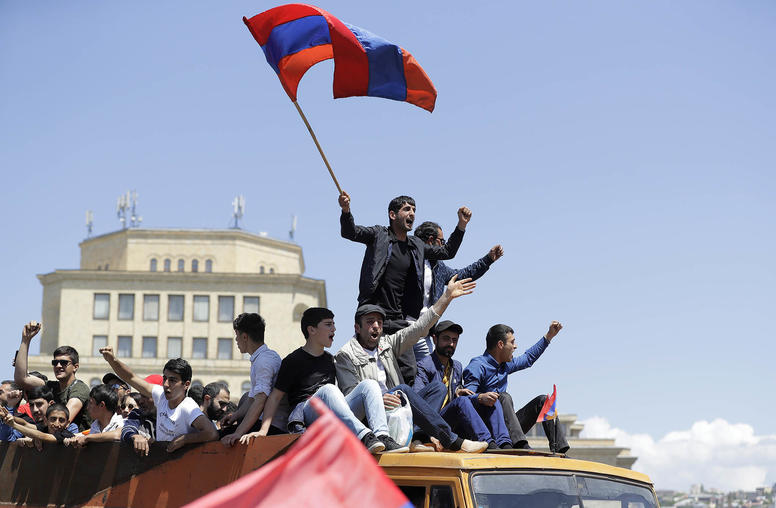Publications
Articles, publications, books, tools and multimedia features from the U.S. Institute of Peace provide the latest news, analysis, research findings, practitioner guides and reports, all related to the conflict zones and issues that are at the center of the Institute’s work to prevent and reduce violent conflict.

La acción no violenta en la era del autoritarismo digital: Dificultades e innovaciones
A fines de la década de 2000 y principios de 2010, los movimientos de acción no violenta utilizaron las redes sociales y otras herramientas digitales para organizar levantamientos a favor de la democracia que tomaron por sorpresa a los regímenes. Esos eufóricos comienzos han dado paso a la represión digital, las restricciones de libertades en línea y el retroceso democrático a medida que los regímenes autoritarios aprovechan las nuevas tecnologías para vigilar a la oposición y sembrar desinformación. Este informe documenta cómo los activistas no violentos se están adaptando a la represión digital y sugiere formas en que los Estados Unidos y sus aliados pueden ralentizar el ritmo de la innovación autocrática en el uso de estas tecnologías.

Autoritarismo digital y acción no violenta: Desafiando la contrarrevolución digital
Las campañas de acción no violenta son una de las maneras más comunes en la que los ciudadanos buscan cambiar de forma pacífica los sistemas políticos indiferentes. Sin embargo, las tecnologías recién desarrolladas y emergentes están transformando la naturaleza de las interacciones entre los activistas y los Gobiernos autoritarios. En este informe, se analiza el conjunto cada vez más sofisticado de herramientas, como el reconocimiento facial y la vigilancia de las plataformas de redes sociales, que los regímenes autoritarios utilizan para reprimir los movimientos no violentos, y se ofrecen recomendaciones sobre cómo los formuladores de políticas y activistas pueden desarrollar estrategias creativas para derrotar al autoritarismo digital.

Susan Stigant on the U.S. Response to the Fighting in Sudan
As the Sudanese military and Rapid Support Forces continue fighting, the United States needs to avoid getting “caught in the trap that we’re trying to choose one [side] over the other. At the end of the day, there’s a third voice here, and that’s civilians and the Sudanese people,” says USIP’s Susan Stigant.

Andrew Wells-Dang on U.S.-Vietnam Relations 48 Years After the War
While U.S.-Vietnam relations have progressed remarkably since the end of the Vietnam War, “we talk about reconciliation as a long-term process … so even though we’re now almost 50 years into the post-war period, that reconciliation process isn’t complete yet,” says USIP’s Andrew Wells-Dang.

Brian Harding on Renewed U.S.-Philippines Ties
Philippine President Marcos’s visit to Washington has helped usher the U.S.-Philippines relationship into “a new renaissance,” says USIP’s Brian Harding. And with growing concerns over Beijing’s influence in the Pacific, “[Marcos] is making a bet that if he deepens this relationship … that is how he’s going to deter China.”

Tamanna Salikuddin on Imran Khan’s Arrest and Pakistan’s Political Crisis
After violent protests over his arrest, former Pakistani Prime Minister Imran Khan was released over the weekend. However, this latest political crisis isn’t going away soon, says USIP’s Tamanna Salikuddin: “What we’re headed to is a clash between the very powerful military and the very popular [Khan].”

Disengaging and Reintegrating Violent Extremists in Conflict Zones
Dealing with people who leave violent extremist groups has become one of the most pressing security issues of our time. Drawing on new primary research conducted by the author in Iraq, Syria, and Nigeria, and existing research on disengagement and reintegration, this report underscores the challenges of administering rehabilitation programs in conditions of chronic insecurity—and of doing so at a scale sufficient to make a difference to hundreds or even thousands of people in short order.

Carla Freeman on China’s Vision for a New Global Security Order
Chinese President Xi Jinping’s Global Security Initiative seeks to supplant the U.S.-led order, and it is gaining traction in the Global South. “There is a sense among developing countries that the international security order isn’t working that well for them,” says USIP’s Carla Freeman. “But none of these countries want to be forced to choose between the U.S. and China.”

Overcoming the Challenges of Transitional Mobilization
Nonviolent action can be a powerful way to bring about peaceful transitions from autocratic rule to democracy. But even when initially successful, movement leaders often face significant challenges, from frustrations that grievances are not addressed quickly enough to counterrevolutions aimed at restoring the authoritarian status quo. This report examines two recent transitions—the 2011 Jasmine Revolution in Tunisia and Armenia’s 2018 Velvet Revolution—and presents recommendations for improving the likelihood that change initiated through nonviolent action leads to robust and lasting democracy.

Mona Yacoubian on Arab Normalization with Syria’s Assad
Many Arab countries have concluded that President Bashar al-Assad is entrenched power and that they’ll need his cooperation to address challenges like refugees and the illicit drug trade. In Washington, there is no appetite to normalize with Assad. “I think ultimately what we see is just a fundamental tension between the need for accountability and fatigue in the region,” USIP’s Mona Yacoubian says.